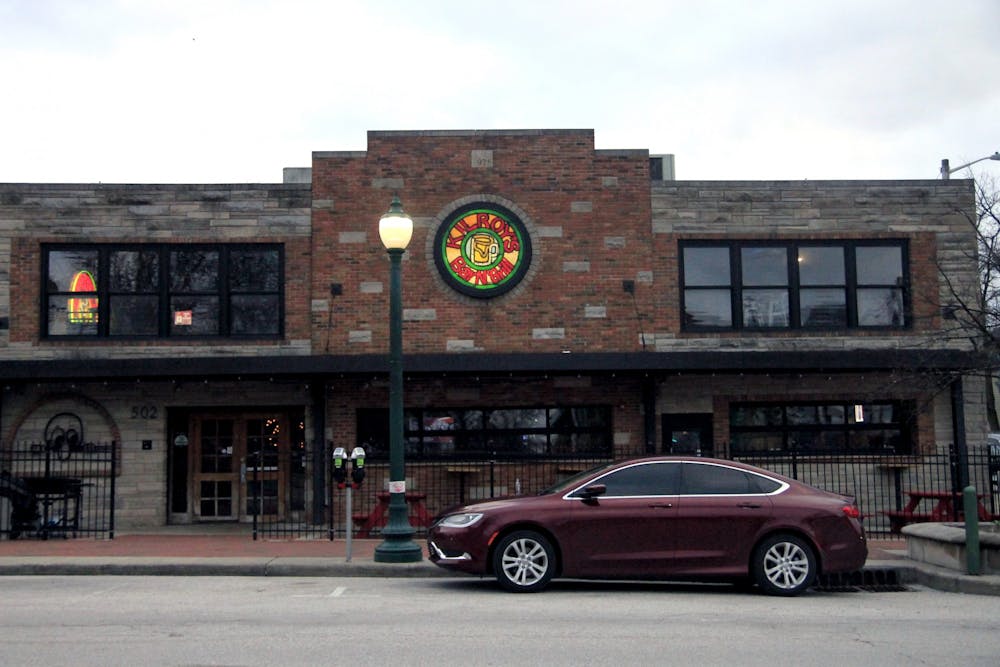I groan every time someone asks me to go out to the bars. And it’s not because I don’t enjoy hanging out with my friends or getting dressed up to go somewhere. In fact, the pandemic has made me realize just how much those experiences mean to me. I just wish drinking wasn’t always the main activity at these events.
I can’t drink. And it’s not because I don’t want to or because I am not old enough, but rather because of my cursed stomach disorder that makes even digesting meals a challenge. I have gastroparesis, which is just a fancy way of saying everyone else was born with a $400 blender for a stomach whereas mine would probably go for around $10 on a good day.
Though my disorder affects multiple other aspects of my life such as inflicting chronic nausea, fatigue and the necessity for my diet to be reduced to mush, its most discouraging effect is my inability to metabolize alcohol. I was never much of a partier even before my diagnosis, but I was unprepared for how significant a strain my affliction would be on my social life.
Many have probably been sober around a slew of drunk people at one point or another. I imagine it was quite uncomfortable, as both states of consciousness operate under entirely different wavelengths. But I also imagine these occurrences were circumstantial or unprovoked, as most likely don’t plan to be sober unless they’re designated driving.
This, however, is my typical environment every time I go out.
And I don’t completely resent it, but it’s caused me to come to these situations armed with a couple things to cope with the inevitable exclusivity of being the only sober person at events.
First, the most important thing is coming to terms with all possible feelings that may arise at get-togethers where alcohol is involved. This may include loneliness, embarrassment or discomfort when someone unaware of my situation offers me a drink. Every time this happens, I’m forced to either politely decline and wait for the judgmental “Why not?” or “Oh, come on,” that often arises, or force my vulnerability and tell them my situation upfront. I don’t enjoy either, but the more comfortable I become with my truths, the easier this gets. It just takes practice.
Second, it’s important to establish boundaries with the people you’re surrounded by who do drink. I’m lucky enough to have friends that never judge or treat me differently because I can’t drink, but going out with new people produces inevitable unknowns. But, because I must always provide a disclaimer for my lack of drinking, many often ask me to designated drive. Of course I want my friends and acquaintances to get home safe after a night of drinking, but I don’t always want to be the one responsible for doing so. Just because you can drive people home doesn’t necessarily mean you have to. So, even though you might be the regular “sober,” it’s ok to take turns with others so the burden isn’t always on you.
Lastly, I always try encouraging activities that don’t involve merely drinking, pregaming or going to the bars.
Psychologist Elizabeth Hartney, director of the Centre for Health Leadership and Research at Royal Roads University in Canada, recommends finding cheap things to do without alcohol as an alternative for those who are sober. According to a Verywell Mind article, Hartney explains that diversifying activities to include non-alcoholic pastimes can also help build necessary social skills to help facilitate friendships and relationships. This can include going to comedy clubs, going roller skating, taking walks or really any shared experience other than being inebriated — and everyone can save some money in the process.
Though not being able to drink kind of sucks, it’s made me recognize authentic relationships and cultivate genuine experiences. Those who truly care about me don’t care that I can’t drink, and anyone who makes it a “thing” isn’t really worth my time. So just for funsies, I recommend everybody try being the “sober” at a bar or party to see what it’s like. If for no other reason, it’s definitely great for people watching.
Natalie Gabor (she/her) is a senior studying journalism with minors in business marketing and philosophy. She hopes to one day find a career that tops her brief stint as a Vans employee.






